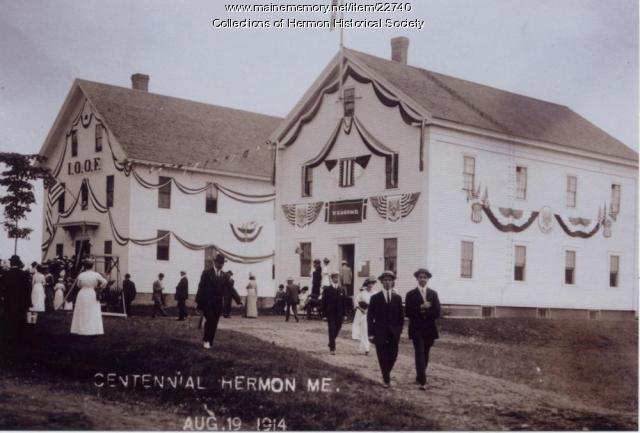Category: Social Movements & Services, Civic & political activity
- Historical Items (336)
- Tax Records (0)
- Architecture & Landscape (0)
- Online Exhibits (12)
- Site Pages (25)
- My Maine Stories (22)
- Lesson Plans (7)
Lesson Plans
Your results include these lesson plans. Your results include these lesson plans.
Lesson Plan
Immigration: Challenges and Opportunities in Maine
Grade Level: 9-12
Content Area: Social Studies
Learn about immigration in the United States using primary sources from Maine Memory Network and the Library of Congress.
Lesson Plan
Grade Level: 6-8, 9-12, Postsecondary
Content Area: Social Studies
This lesson presents an overview of the history of the LGBTQ community in Maine and the U.S., including the ways in which attitudes towards the LGBTQ community have changed over time, some of the ways LGBTQ people have faced discrimination and unfair treatment, and some of the moments in Maine and U.S. history that inspired LGBTQ people and their allies to fight for equality and LGBTQ rights.
Lesson Plan
Primary Sources: Maine Women's Causes and Influence before 1920
Grade Level: 6-8
Content Area: Social Studies
This lesson plan will give students the opportunity to read and analyze letters, literature, and other primary documents and articles of material culture from the MHS collections relating to the women of Maine between the end of the Revolutionary War through the national vote for women’s suffrage in 1920. Students will discuss issues including war relief (Civil War and World War I), suffrage, abolition, and temperance, and how the women of Maine mobilized for or in some cases helped to lead these movements.
Lesson Plan
Black History and the History of Slavery in Maine
Grade Level: 6-8, 9-12, Postsecondary
Content Area: Social Studies
This lesson presents an overview of the history of the Black community in Maine and the U.S., including Black people who were enslaved in Maine, Maine’s connections to slavery and the slave trade, a look into the racism and discrimination many Black people in Maine have experienced, and highlights selected histories of Black people, demonstrating the longevity of their experiences and contributions to the community and culture in Maine.
Lesson Plan
Nation to Nation: Treaties and Legislation between the Wabanaki Nations and the State of Maine
Grade Level: 9-12
Content Area: Social Studies
This lesson plan asks high school students to think critically about and look closely at documentation regarding the Nation-to-Nation relationship between the Wabanaki Tribes/Nations and the State of Maine. This lesson asks students to participate in discussions about morality and legislative actions over time. Students will gain experience examining and responding to primary and secondary sources by taking a close look at documents relating to the Maine Indian Claims Settlement Act of 1980 (MICSA) and the issues that preceded and have followed the Act.
Lesson Plan
Building Community/Community Buildings
Grade Level: 6-8
Content Area: Social Studies
Where do people gather? What defines a community? What buildings allow people to congregate to celebrate, learn, debate, vote, and take part in all manner of community activities? Students will evaluate images and primary documents from throughout Maine’s history, and look at some of Maine’s earliest gathering spaces and organizations, and how many communities established themselves around certain types of buildings. Students will make connections between the community buildings of the past and the ways we express identity and create communities today.
Lesson Plan
Teddy Roosevelt, Millie, and the Elegant Ride Companion Curriculum
Grade Level: 3-5, 6-8
Content Area: Social Studies
These lesson plans were developed by Maine Historical Society for the Seashore Trolley Museum as a companion curriculum for the historical fiction YA novel "Teddy Roosevelt, Millie, and the Elegant Ride" by Jean. M. Flahive (2019). The novel tells the story of Millie Thayer, a young girl who dreams of leaving the family farm, working in the city, and fighting for women's suffrage. Millie's life begins to change when a "flying carpet" shows up in the form of an electric trolley that cuts across her farm and when a fortune-teller predicts that Millie's path will cross that of someone famous. Suddenly, Millie finds herself caught up in events that shake the nation, Maine, and her family. The lesson plans in this companion curriculum explore a variety of topics including the history of the trolley use in early 20th century Maine, farm and rural life at the turn of the century, the story of Theodore Roosevelt and his relationship with Maine, WWI, and the flu pandemic of 1918-1920.








